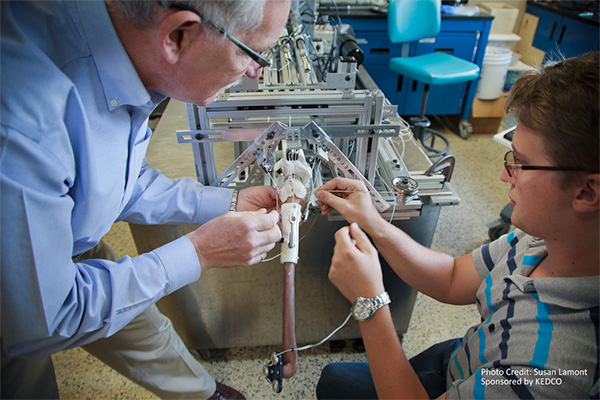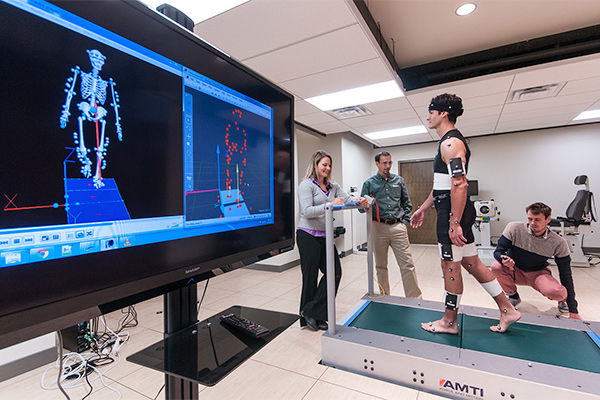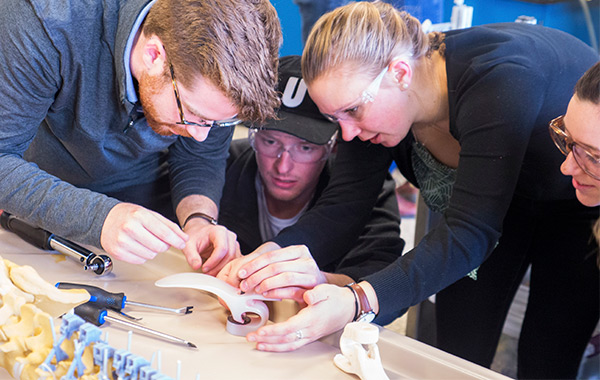Researchers in Biomedical, Biomechanical, and Bioengineering fields in the Department of Mechanical and Materials Engineering use mechanistic approaches and advanced tools in imaging and computational modelling to study biological systems and movement (see Figures 1 and 2).
Research strengths in this area include cellular and subcellular mechanobiology, orthopaedic biomechanics (see Figure 3), ergonomics, locomotion, and energetics. The combination of these strengths and the department’s core competencies in mechatronics and mechanical design has produced transformative assistive technologies, including energy-returning prosthetic feet, end-user-designed rehabilitative devices, and energy-harvesting backpacks. With the emergence of state of-the-art biosensors and integration algorithms, the group is rapidly moving biomechanical and bioengineering research from the lab into real-world environments and biomedical research into hospitals and communities.

The group includes a fellow of the Canadian Academy of Engineering (CAE) and a recipient of a Dorothy Killam Fellowship. The group receives funding from the Natural Sciences and Engineering Research Council of Canada (NSERC), the Ontario Research Fund – Research Excellence (ORF-RE), the Canada Foundation for Innovation (CFI), the Social Sciences and Humanities Research Council of Canada (SSHRC), and Ontario’s Early Researcher Awards program (ERA).

